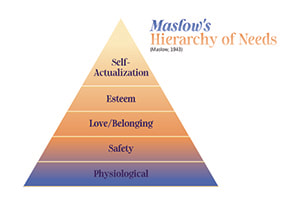|
In this video, Sybil discusses how we hold space for hope in the therapy room with our domestic abuse clients; both when they are feeling hopeless and, on the other hand, when our clients are hopeful about a situation we, as therapists, see as unrealistic or hopeless.
0 Comments
In this interview, Barbara Sheehan-Zeidler, MA, LPC, of Creative & Caring Counseling, and Sybil Cummin, MA, LPC, of Arvada Therapy Solutions and creator of Beyond Power and Control, discuss the ways in which Eye Movement Desensitization and Reprocessing (EMDR) can benefit victims and survivors of Domestic Violence. By Sybil Cummin, MA, LPC, ACS  You have been working with a client for several months and feel completely frustrated and stuck. What the heck is going on? I’m not a bad therapist, am I? Nope, this client must be resistant to real change, right? Hmmm. As you are doubting yourself and your client’s motivations, you might be missing something much more basic. Something we learned in the early stages of our training to become mental health professionals. Maslow’s Hierarchy of Needs was developed in 1943 by Abraham Maslow and represents a shift in thinking about people’s motivation and psychology from a more “what is wrong with you, why can’t you reach your potential” to a more “what do you need to reach your potential.” His model can be seen as a pyramid (see the image below) where the most basic needs are seen in the bottom of the pyramid and the more complex or growth needs are pictured at the top. So, basically, we need to have our physiological needs met before we work our way up to improving our self-esteem and self-actualization (realizing our full individual potential). Do you remember this from one of those developmental classes or classes on theory? By Sybil Cummin, MA, LPC, ACS  Does the term “Assessment” make you want to put your head down and take a snooze? Does it seem like assessment is something we HAVE to do just to CYA? I’m wondering if we can shift that perspective to provide our clients with the best care. As clinicians, assessment is one of the most important jobs we do for our clients. During the assessment process, we gather data, which then determines the level and severity of our clients’ presenting issues and guides our treatment planning and process. Remember that assessment is a dynamic and ongoing process. A process that does not end after your initial intake and creation of a treatment plan. This is especially true for those who are living in or are surviving domestic violence. By Megan Burch, LSW, Therapist/Owner of Joy Creek Counseling, LLC  Welcome to Part II of Seeing Survivors Through a Lens of Compassion! We are looking at the behaviors of survivors of domestic violence in order to shift to a place of understanding and compassion. In Part I, we deconstructed some common lenses that we might be currently using with our survivor clients. If you haven’t read the first piece, it would be helpful to start there. Understanding behaviors is the first step to shifting into a place of compassion. After exploring the depth of survivor decision making and context, let’s first take a deep breath and pause. I think that it’s really important to sit in this pause. Part I may have been difficult to read as we may have found ourselves making some of those statements of: Why doesn’t my client just leave? My client lies to me. My client is minimizing the abuse. We may have made those statements to a client, to another helping professional, to ourselves. Let’s bring in some self-compassion for ourselves. You are on this website because you want to improve your practice with domestic violence. We can’t improve our practice until we take a look at our current practice. We are all learning together. By Megan Burch, LSW, Therapist/Owner of Joy Creek Counseling, LLC  After partnering with survivors of domestic violence for over 10 years, I have heard many comments from other helping professionals expressing their frustrations in working with domestic violence, particularly in working with survivors. Often, helping professionals ask questions or make statements with no easy answers or no clear context. Why doesn’t my client just leave? My client lies to me. My client is minimizing the abuse. These questions/statements are loaded with complexity. When I hear comments like this, I try to look at this from a position of assuming well. I like to assume that, “This helping professional cares about the well-being of their client.” When we make statements like this, it is often out of concern for our clients. We don’t want to see them get hurt anymore. We want the best for them. We want them to be able to live a life free of emotional and physical violence. |
AuthorSybil Cummin, MA, LPC, ACS Archives
February 2021
Categories
All
|
